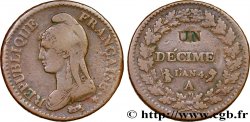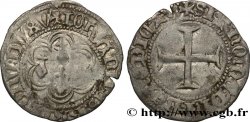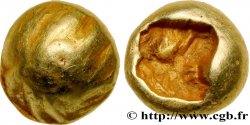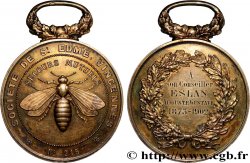Live auction - fme_705368 - DIRETTORIO Médaille, Conseil des Cinq-Cents
Devi Sign-in ed essere un offerente approvato fare un'offerta, Login per fare offerte. Conti sono soggetti ad approvazione e di approvazione sono raggiunti entro 48 ore. Non aspettare fino al giorno di una vendita si chiude per registrarti.Confermando la tua offerta su questo oggetto ti impegni ad un contratto legalmente vincolante per l'acquisto di questo prodotto e fare clic su «offerta» costituisce accettazione dei termini di utilizzo de live auctions cgb.fr.
Offerta deve essere collocato in euro gli importi interi vendita only.The si chiuderà al momento sulla descrizione dell'oggetto, eventuali offerte pervenute al sito dopo l'orario di chiusura non verranno eseguite. Volte transmition possono variare e le offerte potrebbero essere respinto se si attende per gli ultimi secondi. Per ulteriori informazioni ckeck le FAQ Live auction.
Le offerte vincenti saranno sottomesse ai 18% per spese di compartecipazione alla vendita.
Le offerte vincenti saranno sottomesse ai 18% per spese di compartecipazione alla vendita.
| Valutazione : | 400 € |
| Prezzo : | 820 € |
| Offerta maxima : | 820 € |
| Data di fine vendita : | 08 marzo 2022 18:51:20 |
| partecipanti : | 2 partecipanti |
Tipo : Médaille, Conseil des Cinq-Cents
Data: 1795-1796
Metallo : argento
Diametro : 47,5 mm
Asse di coniazione : 6 h.
Peso : 30,33 g.
Orlo : lisse
Marchio : sans poinçon
Grado di rarità : R2
Commenti sullo stato di conservazione:
Exemplaire ayant été nettoyé, quelques traces de frottement dans les champs. Présence de quelques fines rayures. Des coups sur la tranche
Diritto
Titolatura diritto : REP. FR. / CONSEIL / DES / CINQ-CENTS..
Descrittivo diritto : Inscription en 4 lignes, équerre et pendule à l’exergue.
Rovescio
Titolatura rovescio : FELIX FAULCON / REPRESENTANT. / DU / PEUPLE. / AN 4.
Descrittivo rovescio : Inscription en 5 lignes.
Commento
Cet exemplaire a été attribué à Félix Faulcon pour l’an IV (1795-1796). De son nom complet, Marie-Félix Faulcon, chevalier de La Parisière, sieur de La Fenestre (1758-1843) est un juriste, homme de lettres, historien et homme politique français. Député aux États généraux de 1789 (jusqu’au 30 septembre 1791), il sera ensuite député de la Vienne (représentant du peuple) à partir du 15 octobre 1795 jusqu’au 1er juillet 1804.
Il y combattit un projet de remplacement des fonctionnaires par le Directoire, s'opposa à l'admission de sept membres présentés pour compléter le Corps législatif, demanda le rapport de l'article 19 de la loi du 30 vendémiaire, et vota contre le recours en cassation des jugements de la haute cour. En l'an V, il opina en faveur des projets de Daunou sur « la répression des abus de la presse », défendit la cause d'incompatibilité d'humeur pour le divorce, etc.
Le Conseil des Cinq-Cents, “chambre basse”, était l'une des deux Assemblées du Directoire. Composé de 500 députés comme son nom l'indique, le Conseil était élu au suffrage censitaire à deux tours, conformément à la Constitution de l'An III, chacun devait être âgé de plus de 30 ans et résidant depuis au moins dix ans sur le territoire national. Les citoyens de chaque canton, hommes majeurs de vingt et un ans, payant une contribution directe ou justifiant de services militaires actifs dans l'armée et résidant en France depuis au moins un an, se réunissaient en assemblées primaires afin de désigner un « grand électeur » pour 200 habitants. Le Conseil avait l'initiative des projets de Loi soumis ensuite au Conseil des Anciens, “chambre haute”. Ses députés dressaient la liste où le Conseil des Anciens devait choisir les Directeurs. Après les élections de l'An V, la majorité thermidorienne disparut. L'Assemblée fut renversée et dissoute par le Coup d'État de Bonaparte le 18 brumaire An 8 (9 novembre 1799).
This example was attributed to Félix Faulcon for the year IV (1795-1796). His full name, Marie-Félix Faulcon, Chevalier de La Parisière, Sieur de La Fenestre (1758-1843) was a French jurist, man of letters, historian and politician.. Deputy to the Estates General of 1789 (until September 30, 1791), he was then deputy of Vienne (representative of the people) from October 15, 1795 until July 1, 1804.
There he fought against a project to replace civil servants by the Directory, opposed the admission of seven members presented to complete the Legislative Body, requested the report of article 19 of the law of 30 Vendémiaire, and voted against the appeal for cassation of the judgments of the high court. In the year V, he supported Daunou's plans for \\\"the repression of press abuses\\\", defended the cause of incompatibility of temperament for divorce, etc..
The Council of Five Hundred, the “lower house,” was one of the two Assemblies of the Directory. Composed of 500 deputies as its name indicates, the Council was elected by census suffrage in two rounds, in accordance with the Constitution of Year III, each had to be over 30 years old and resident for at least ten years on the national territory. The citizens of each canton, men of legal age twenty-one, paying a direct contribution or having active military service in the army and residing in France for at least one year, met in primary assemblies to designate a \\\"grand elector\\\" for every 200 inhabitants.. The Council had the initiative for draft laws which were then submitted to the Council of Elders, the “upper house”.. His deputies drew up the list from which the Council of Elders was to choose the Directors.. After the elections of the Year V, the Thermidorian majority disappeared. The Assembly was overthrown and dissolved by Bonaparte's coup d'état on 18 Brumaire Year 8 (November 9, 1799)
Il y combattit un projet de remplacement des fonctionnaires par le Directoire, s'opposa à l'admission de sept membres présentés pour compléter le Corps législatif, demanda le rapport de l'article 19 de la loi du 30 vendémiaire, et vota contre le recours en cassation des jugements de la haute cour. En l'an V, il opina en faveur des projets de Daunou sur « la répression des abus de la presse », défendit la cause d'incompatibilité d'humeur pour le divorce, etc.
Le Conseil des Cinq-Cents, “chambre basse”, était l'une des deux Assemblées du Directoire. Composé de 500 députés comme son nom l'indique, le Conseil était élu au suffrage censitaire à deux tours, conformément à la Constitution de l'An III, chacun devait être âgé de plus de 30 ans et résidant depuis au moins dix ans sur le territoire national. Les citoyens de chaque canton, hommes majeurs de vingt et un ans, payant une contribution directe ou justifiant de services militaires actifs dans l'armée et résidant en France depuis au moins un an, se réunissaient en assemblées primaires afin de désigner un « grand électeur » pour 200 habitants. Le Conseil avait l'initiative des projets de Loi soumis ensuite au Conseil des Anciens, “chambre haute”. Ses députés dressaient la liste où le Conseil des Anciens devait choisir les Directeurs. Après les élections de l'An V, la majorité thermidorienne disparut. L'Assemblée fut renversée et dissoute par le Coup d'État de Bonaparte le 18 brumaire An 8 (9 novembre 1799).
This example was attributed to Félix Faulcon for the year IV (1795-1796). His full name, Marie-Félix Faulcon, Chevalier de La Parisière, Sieur de La Fenestre (1758-1843) was a French jurist, man of letters, historian and politician.. Deputy to the Estates General of 1789 (until September 30, 1791), he was then deputy of Vienne (representative of the people) from October 15, 1795 until July 1, 1804.
There he fought against a project to replace civil servants by the Directory, opposed the admission of seven members presented to complete the Legislative Body, requested the report of article 19 of the law of 30 Vendémiaire, and voted against the appeal for cassation of the judgments of the high court. In the year V, he supported Daunou's plans for \\\"the repression of press abuses\\\", defended the cause of incompatibility of temperament for divorce, etc..
The Council of Five Hundred, the “lower house,” was one of the two Assemblies of the Directory. Composed of 500 deputies as its name indicates, the Council was elected by census suffrage in two rounds, in accordance with the Constitution of Year III, each had to be over 30 years old and resident for at least ten years on the national territory. The citizens of each canton, men of legal age twenty-one, paying a direct contribution or having active military service in the army and residing in France for at least one year, met in primary assemblies to designate a \\\"grand elector\\\" for every 200 inhabitants.. The Council had the initiative for draft laws which were then submitted to the Council of Elders, the “upper house”.. His deputies drew up the list from which the Council of Elders was to choose the Directors.. After the elections of the Year V, the Thermidorian majority disappeared. The Assembly was overthrown and dissolved by Bonaparte's coup d'état on 18 Brumaire Year 8 (November 9, 1799)







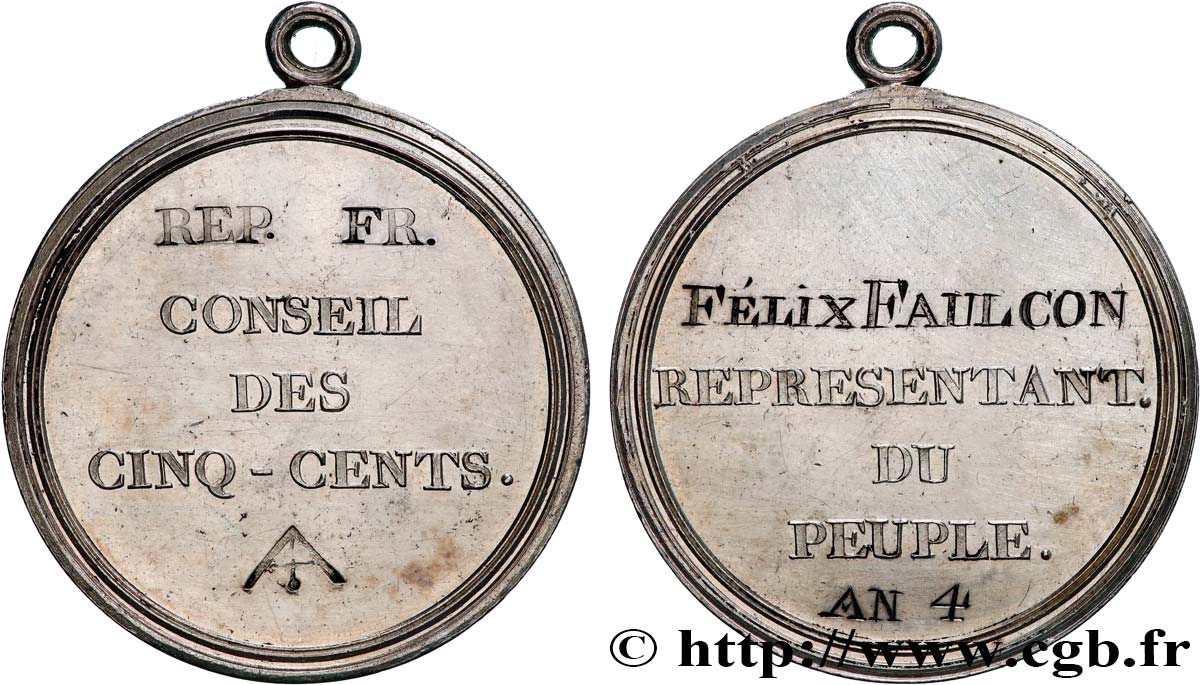
 Segnalare un errore
Segnalare un errore Stampate la pagina
Stampate la pagina Condividi mia selezione
Condividi mia selezione Fai una domanda
Fai una domanda Consegnare / vendere
Consegnare / vendere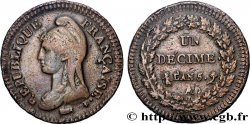
 Descrittivo
Descrittivo



